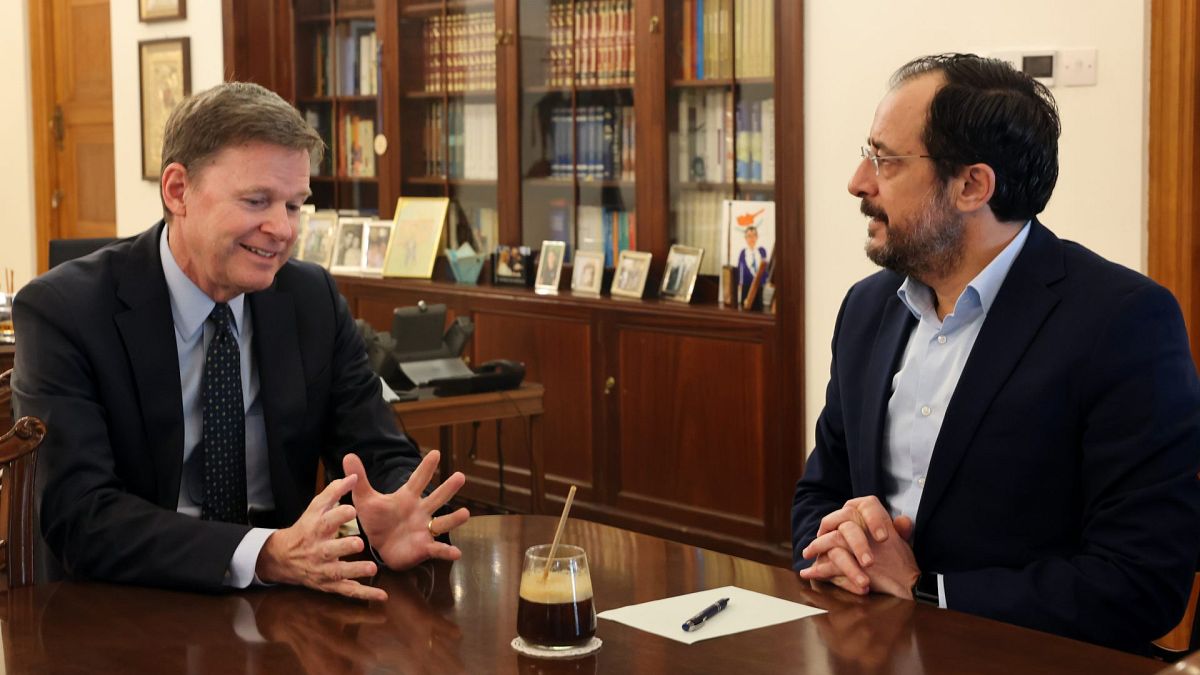

In recent days, the international stage has been a tapestry of attempts to foster dialogue, with mixed strides across different regions. These developments mark both challenges and hope as global leaders seek to address intricate geopolitical issues.
In Cyprus, the ongoing diplomatic efforts to reconcile differences between the Greek Cypriots and Turkish Cypriots face persistent hurdles. Colin Stewart, the United Nations Secretary-General’s Special Representative for Cyprus, recently concluded his mission with a hint of disappointment. Despite ongoing negotiations, progress has been sluggish. Stewart’s departure underscores the need for renewed commitment and openness from both communities, emphasizing that constructive engagement remains essential to bridging historical divides and achieving a lasting resolution to the longstanding conflict.
Meanwhile, in Eastern Europe, the Ukraine-Russia situation continues to be of significant concern. Russian President Vladimir Putin appears to be taking a strategic pause in the wake of an ultimatum set by former U.S. President Donald Trump, demanding an August 8 ceasefire. As tensions simmer, the international community remains watchful, hoping diplomatic channels can be kept open to de-escalate the conflict and return to peace discussions.
Turning to the Korean Peninsula, South Korea has initiated a symbolic and tangible step toward easing tensions with its northern neighbor by dismantling loudspeakers along the demilitarized zone. These devices, historically used for broadcasting propaganda, symbolized the animosity between the two nations. President Lee Jae Myung has embarked on this initiative as part of his broader strategy to revive stalled dialogues and enhance inter-Korean relations. This measure is intended to reduce hostility while maintaining military readiness, showing a commitment to peace and reconciliation on the Peninsula.
In the Middle East, diplomatic efforts also unfold as a contingent of House Democrats in the United States urges the Trump administration to recognize Palestinian statehood. This advocacy, led by Congressman Ro Khanna, reiterates an emphasis on upholding the rights and dignity of Palestinians as an essential step towards sustainable peace. The push aligns with broader discussions in international forums about fair and lasting solutions for the Israeli-Palestinian impasse.
Parallel to these developments, Speaker of the U.S. House of Representatives Mike Johnson made headlines with his recent visit to the West Bank, an area fraught with complexities. Johnson’s unannounced trip was intended to showcase support for Israeli settlers, yet it attracted criticism from the Palestinian Foreign Ministry, which viewed the visit as a setback to peace efforts. The trip highlights the sensitivity and ongoing tensions in the region, where diplomatic overtures must intricately balance diverse perspectives and longstanding disputes.
These events collectively reflect the dynamic nature of international relations today. As different regions grapple with unique challenges, the global community’s ongoing efforts to nurture dialogue and foster understanding spotlight the enduring pursuit of peace and cooperation in an increasingly interconnected world. Each stride, whether perceived as a step forward or a momentary pause, contributes to the larger narrative of commitment to diplomatic engagement—echoes of hope and the possibility of reconciliation amidst complexity.
Source: {link}
